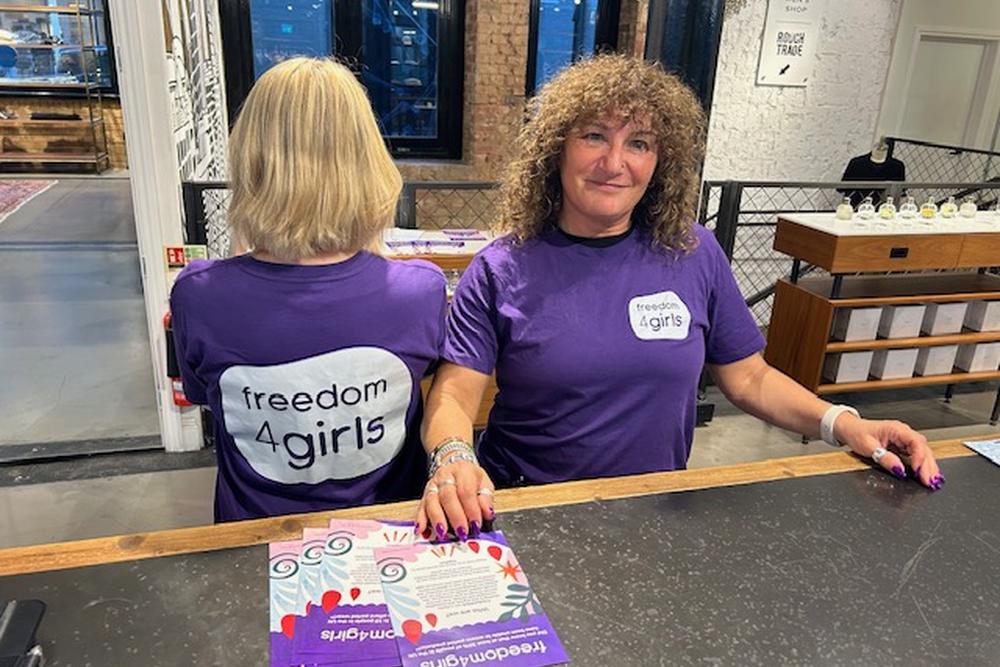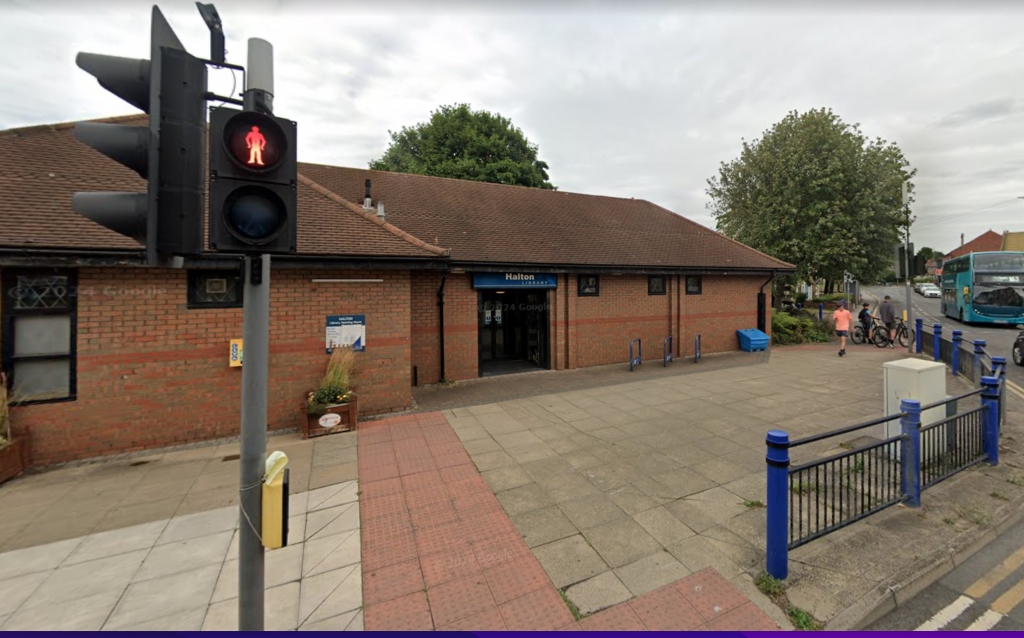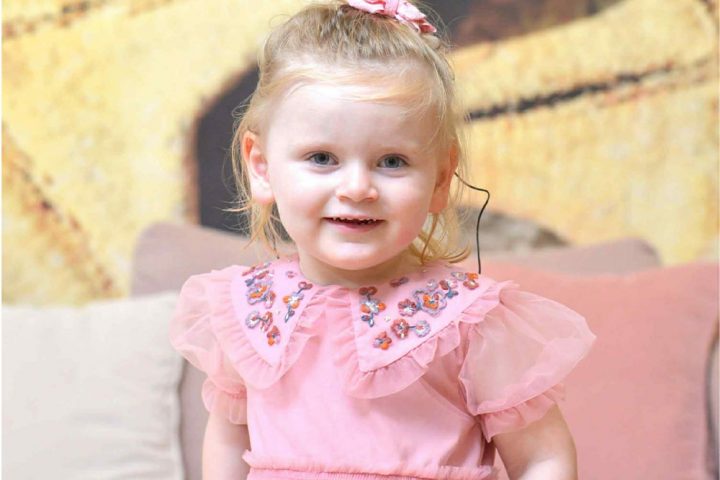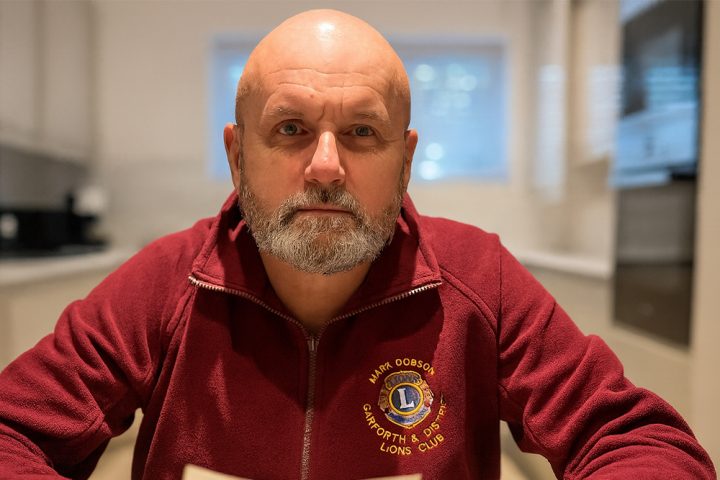Tina Leslie didn’t set out to start a charity. She just wanted to help. Armed with old towels, a few friends and a sewing machine, she stitched together what would become Freedom4Girls a small East Leeds organisation that now distributes tens of thousands of period packs each year.
A decade later, the need has only grown and the mission has become urgent.
In classrooms across the UK, teenage girls sit in silence, dreading the moment their period starts. Some are too ashamed to ask for help. Others know there’s no guarantee they’ll be allowed to use the toilet. Many simply stay home. The fear of bleeding through their clothes, of embarrassment, of being denied basic dignity, is keeping thousands out of school every month. What began as a hidden crisis has now burst into public view and for Tina Leslie, it’s personal, urgent, and unacceptable.
Her charity, Freedom4Girls is delivering tens of thousands of dignity kits across Leeds and beyond, fighting period poverty from Little London to Nairobi, and trying to change the conversation around menstruation.
“In Kenya, I found out that 65% of girls or women didn’t have access to safe period protection,” Tina explained, adding: “And I remembered when I was 11 years old on a French exchange trip. I started my very first period. I used toilet paper and slept on the floor because I didn’t want to ruin the beautiful French sheets. That really stuck with me.”
What began as a tiny project overseas now serves as a lifeline closer to home. The charity currently distributes over 35,000 one-use period packs a year in Leeds alone, working with more than 100 organisations across the city.
“We deliver to food banks, mental health charities, homeless charities, places like Touchstone,” said Tina. “If you think about it, when I started in the UK there were 1.7 million food bank visits a year. It’s now nearly 3 million. If you can’t afford food, you can’t afford period products.”
Recent reports have only underscored the urgency of Freedom4Girls’ work. A series of headlines and surveys have revealed that girls across the UK are missing school simply because they are on their period.
Studies show that 20% of girls across the world skip school due to their periods, while 64% of girls in the UK skip school because of their period, according to Plan International UK.
This is compounded by the fact that 1 in 4 women in the UK experience period poverty, according to Wateraid.
That statistic is not abstract for Tina. It’s personal.
“We get a lot of emails from parents saying, ‘My daughter won’t go to school,’” she said. “They’re scared they won’t be allowed to go to the loo during class. That’s absolutely horrendous.”
Tina’s team recently worked with a school in East Leeds to pilot a simple but effective solution: students can show a red card in their planner to quietly excuse themselves to use the toilet.
“There are solutions to this,” Tina stressed. “But who even invented the idea that you can’t go to the toilet when you’re on your period? It’s dignity, and it’s a basic human right.”
The charity is not just about product distribution. Education is a key part of its mission, with volunteers going into schools to talk about menstrual health, body positivity, and the science of the cycle.
“We have girls starting their periods at eight years old, and the education is very sparse,” Tina said. “There is such a massive stigma around periods – even in offices, people still hide their pads up their sleeve to go to the loo. We’ve still got a long way to go.”
The charity has adapted its approach to meet different needs. While in Kenya they focus on reusable products due to practical constraints (“there’s 200 kids and two latrines”), in the UK they “mostly deliver one use products” because “people are really struggling to even just put the washing machine on.”
However, Freedom4Girls also runs innovative “make the switch” programs, partnering with companies like ModiBodi to distribute period pants and hosting sewing workshops where people can create reusable products. These sessions happen in community centers, leisure centers, and through partnerships across Leeds.
Her commitment runs deep, and it has not gone unnoticed. Freedom4Girls received the Queen’s Award for Voluntary Service in 2022, and Tina was awarded an MBE in 2023. Both honours came as a surprise.
“People nominated us, which was nice,” she said, modestly. “It was amazing to get that recognition.”
But behind the accolades lies a daily grind. Like many small charities, Freedom4Girls is grappling with rising demand and falling funding.
“As a small charity it’s quite a difficult time to be fair, you know, and also when funding’s being cut, ’cause obviously it costs money to run a charity as well,” Tina said, adding: “There are so many people applying for the same pots of money. And I don’t think everyone really gets what period poverty is. It’s the toxic trio – lack of affordability, lack of education, and stigma. We’re trying to tackle all three.”
For many of the people they support, the charity is more than just a helpful service. It’s a lifeline.
“People are just so grateful,” Tina said. “If you’re choosing between feeding your kids and buying period products, it’s one less thing to worry about.”
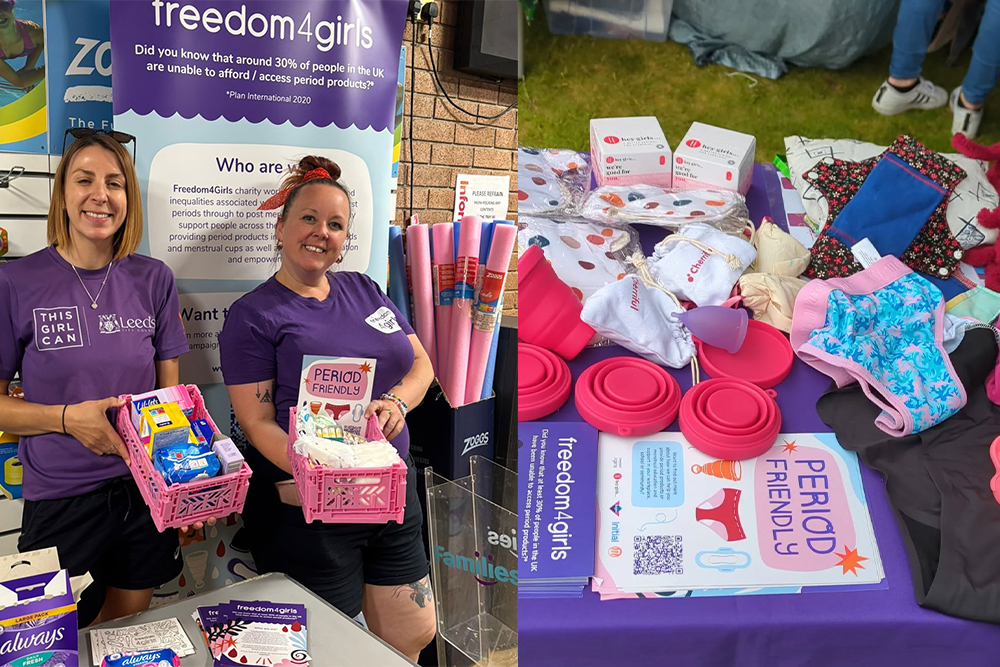
According to an Impact Report produced by the charity, after receiving period products by the Charity, those who received the period products reported significant improvements in their quality of life, including no longer missing work or school due to lack of products, reduced anxiety, improved self-esteem, and less financial stress.
Furthermore, 77% of those who previously used unsafe alternatives never had to use them again after receiving support, 92% felt more productive at work and school. A further 95% reported feeling less anxious about their period, 99% saw an improvement in self-esteem, and 96% felt less worried about money.
The psychological impact on teenagers is particularly acute. Many “don’t wanna go to school and, you know, to the, go to the school office and ask for some period products because it’s so embarrassed.” This embarrassment compounds the practical barriers, creating a perfect storm that keeps girls away from education.
The educational impact cannot be overstated. Leslie points out that missing “one or two days of school a month” creates a cascading effect: “That’s a lot over the year. So that affects your truancy levels. It affects your attainment level.”
“There’s a lot of people in poverty,” Tina said. “It’s a blanket thing across the board nowadays.”
The government scheme to supply free period products in schools has been extended into the next year – a move Tina welcomes. But she worries about what happens outside the school gates, in the homes of families juggling food costs, heating, and hygiene.
“We still get asks from all over the country to provide products and education,” she said. “It’s a difficult time.”
Leslie’s call to action is simple but powerful: “Recognise that there is an issue,” she said. “And talk about it. Talk to your kids. Make periods normal. It’s a basic bodily function, so why do we hide away from it? Smash the stigma. Smash the taboo. Make it just a normal, everyday thing.”
Recognizing that those experiencing period poverty often face other struggles, Freedom4Girls also provides food, hygiene products, clothes, and SIM cards. For example, a SIM card helped an unhoused woman secure a job and reconnect with family, highlighting the holistic impact of their support.
Freedom4Girls continues to accept donations through their website and local donation points in Leeds, including Tesco in Roundhay and the Co-op in Chapel Allerton.
Ultimately, for Tina, the mission remains unchanged: dignity for all, no matter your postcode or passport.
For more information, check out the Freedom4Girls website on https://www.freedom4girls.co.uk/.


